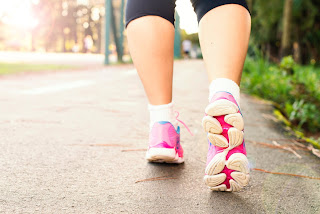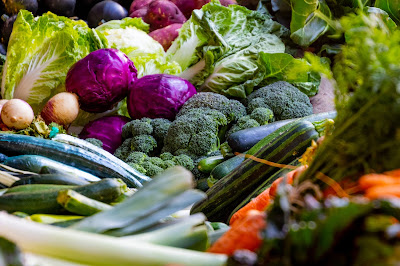The Gut is one of the least appreciated parts of our body. Did you know, according to PLOS Bio, that there are actually more bacterial cells in your body than there are human cells? 10 Million more! Have I got your attention. All of this good bacteria is what helps to keep our whole self healthy from head to toe. What you eat will either help or hinder your overall health because of how it affects the gut. Let's look at the organs and functions supported by a healthy gut microbiome.
- Intestines. All that bloating, gas, indigestion and inflammation is often due to an imbalance in your gut bacteria. Certain good bacteria such as Lactobacilli can actually improve these issues and even seal up the microscopic gaps in the intestinal lining that is known as Leaky Gut Syndrome.
- Heart. A healthy gut can help in regulating your good Cholesterol or HDL
- Blood Sugar. One study performed by the National Institute of Health discovered that the same person eating the very same food at various times had different levels of blood sugar. They theorize that the difference comes from the changing gut bacteria.
- Brain. The gut and the brain are connected through millions of nerves. They definitely communicate back and forth. Certain species of bacteria help to produce neurotransmitter chemicals such as Serotonin. Some researchers are now linking the bad bacteria to various mental illnesses. This is an emerging science but makes you stop and think about that donut.
- Immune System. Your gut is one of the first defenses against bad bacteria. A healthy and appropriate amount of stomach acid helps transport vitamins and minerals to all your cells and stands ready to attack foreign invaders.
How can you improve your gut health? We already know some of the things we can do...
- Eat a variety of healthy fruits and vegetables as well as organic meats
- Fermented foods such as yogurt, kefir, sauerkraut are excellent ways to reduce disease causing bacteria in your gut. Make sure your yogurt isn't the kind filled with sugar.
- Eat prebiotic foods such as bananas, artichokes, oats and apples. The fiber from these foods feed the healthy bacteria.
- Breastfeed for 6 months. Breast milk is full of amazing bacteria that helps establish the gut health in infants.
- Whole grains are another wonderful source of fiber that builds a strong microbiome.
- Limit your use of antibiotics since they destroy bacteria; not just the bad bacteria that makes you sick.
Sometimes, we tend to make our health much more difficult than it needs to be. When we focus on the key organs in our body, such as our gut, so many other problems dissipate. A balanced and healthy gut will promote hormone balance, weight loss, regulate sugars and give our brain the help it needs to be sharp.
Focus on intentional eating rather than fad diets or extremes. Make better choices for yourself and focus on feeding yourself nutrients rather than just whatever food is easy to grab. This is especially important during this time of new viruses. Prevention is the way to approach all illness and disease.







